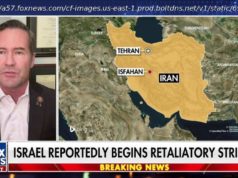President Rodrigo Duterte said continued military rule on the southern island of Mindanao was needed to ensure the “total eradication” of militancy there.
MANILA — The Philippine Congress on Wednesday approved a request from President Rodrigo Duterte to extend martial law on the southern island of Mindanao for another year, which the president said was needed to fight armed groups there.
Mindanao was placed under martial law in May, after local militants backed by the Islamic State seized the city of Marawi. After months of fighting, the government declared victory there in October. But Mr. Duterte said Friday that a yearlong extension of martial law was needed to ensure the “total eradication” of militancy in Mindanao, an impoverished region where various armed groups have been active for decades.
Both houses of Congress approved Mr. Duterte’s request overwhelmingly, despite opposition lawmakers’ warnings that martial law was no longer needed and that to extend it risked eroding constitutional values. The martial law edict gives the military widespread powers, including the ability to carry out warrantless arrests and set up roadblocks and checkpoints.
The president’s request for an extension came shortly after he halted efforts to reach a peace deal with the underground Communist Party of the Philippines, whose armed unit, the New People’s Army, has stepped up attacks in remote communities on Mindanao and elsewhere.
Harry Roque, a presidential spokesman, said Wednesday that the extension of martial law was needed to fight “the communist terrorists and their coddlers, supporters and financiers” and to “ensure the unhampered rehabilitation of war-torn Marawi and the lives of its residents.”
In his request to Congress, Mr. Duterte said that while Islamist militants had been beaten back from Marawi, military intelligence had tracked Islamic State-linked gunmen spreading to other parts of Mindanao, the country’s main southern island and home to the only substantial Muslim population in the overwhelmingly Catholic Philippines. Mr. Duterte said these groups had stepped up their recruitment and “radicalization” activities.
“These activities are geared towards the conduct of intensified atrocities and armed public uprisings in support of their objective of establishing the foundation of a global Islamic caliphate,” Mr. Duterte said.
He identified a militant named Abu Turaipe as the likely successor to Isnilon Hapilon, who was killed in Marawi and was thought to have been the leader of the Islamic State in Southeast Asia. Mr. Turaipe’s ragtag fighters have been engaged in low-intensity fighting with soldiers in marshlands in central Mindanao since August.
Mr. Turaipe’s group, once dismissed as a small band of bandits, pledged allegiance to the Islamic State last year.Mr. Duterte asserted that the group had been gaining strength and was “planning to conduct bombings” in urban centers in the Philippines.
He also said that security forces were still hunting for at least 185 fighters believed to have been involved in the Marawi siege. More than 1,200 people were killed in the fighting in Marawi, the biggest security threat the Philippines has faced since Mr. Duterte took office last year.
Rights groups and opposition politicians have criticized Mr. Duterte’s request to extend martial law, warning that the authoritarian president was setting the stage for an eventual declaration of military rule across the entire country. Mr. Duterte has raised that possibility before .
Francis Pangilinan, the leader of the opposition in the Senate, argued that the victory in Marawi ended the need for continued military rule. He said that if Congress agreed to extend martial law, “we will be in danger of becoming the monsters that we seek to defeat, those who have no regard for law, order or respect for the Constitution.”
Defense Secretary Delfin Lorenzana, arguing the president’s position in Congress, said that such perceptions were “far from what’s happening on the ground” in Mindanao, where the armed forces have reported that militancy is spreading.
“There might not be fighting in Marawi anymore, but there are still clashes almost every day in other parts of Mindanao,” Mr. Lorenzana said.






